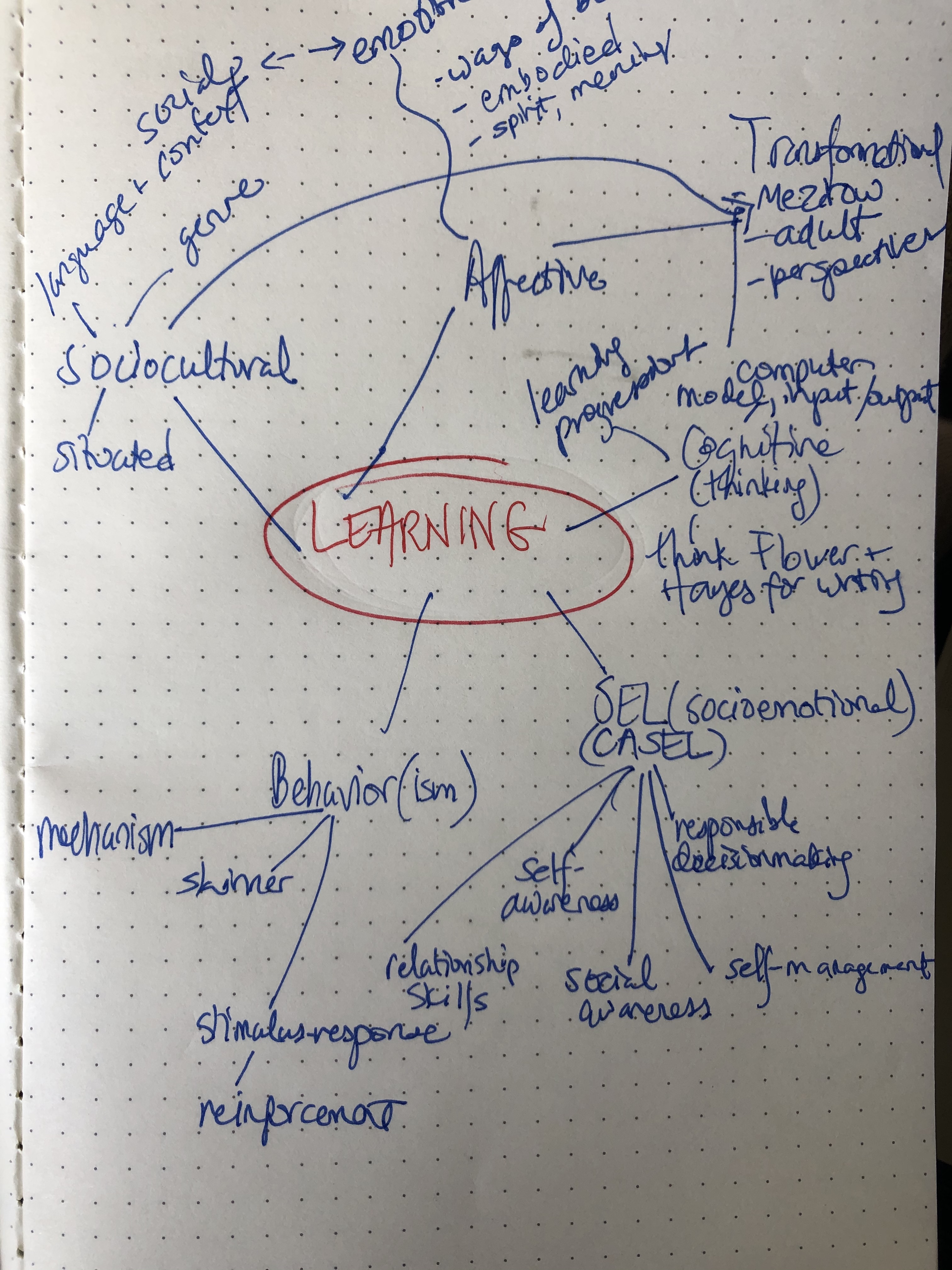

By the end of this lesson, make sure you have completed the readings and activities found in the Lesson 3 Course Schedule.
This lesson is about the key ideas that frame and support the decisions that teachers of writing might make.
First, review Professional Knowledge for the Teaching of Writing. It was composed in a collaboration among writing scholars and teachers from many academic disciplines and teaching contexts, and it included strong representation from K-12 settings as well as college or university.
Then, read the chapter excerpt, Whitney, A. Growing Writers: Principles and Practices that Nourish High School Writing Teachers and their Students. [Not for distribution: this draft text for a book forthcoming from NCTE press in 2021.] that spells out the value and impact on these principles for daily classroom practice.
Make notes and ask questions in your notebook as you read.
The notion of writing as a process may have been with us since the 1960s and prevalent in classrooms since the 1980s, with a solid research basis to support it... but it still suffers attacks from "back to basics" advocates, who prefer that a focus on grammatical conventions and structure come first, with issues like content, audience, and the writer's purpose taking lesser priority. The lesson reading, "Speaking Truth to Power" (Whitney & Johnson, 2017) makes the case that we need a process orientation to teaching writing now more than ever.
In your notebook, note some features and benefits of a process orientation to the teaching of writing.

Writers don't just happen; they grow. Ralph Fletcher, a prominent advocate for positioning students as writers and teaching in the writing workshop format, writes beautifully about what writers need to grow.
Reflect back to the Fletcher, R. J. (1993) "What a Writer Needs" chapters from the previous lesson and spend a few minutes writing in your own writer's notebook on how you connect your own experiences to this reading, and/or how they disconnect.
Researchers and practitioners have come to consensus that a writing workshop format is a classroom organization for teaching writing that can support young writers in building motivation to write, writing stamina, generating writing, and revising and editing writing. Rather than have every child writing the same thing in the same way, writers are offered invitations to write, shown example texts (often called "mentor texts"), helped to identify pieces they would like to write, and supported through precisely-timed whole-class lessons (called "minilessons") as well as one-on-one instruction (called "conferring").
Here is a video by teacher-author, Ruth Ayers explaining in a very basic way what we mean when we say "Writing Workshop" as a classroom format. The truth is that no two teachers do this in the same way, but these components are pretty standard.
Watch the following video that highlights what writing workshop looks like at one elementary school.
Spend a few minutes writing in your notebook: How is the classroom in the video similar to writing classes you have experienced? How is it different from those?
Across the extensive research and practitioner literatures on the teaching of writing, some key principles stand out. For each of the core themes below, I have gathered one or two resources that help to illustrate the importance of that theme.
As you engage with these materials, take some time to work with them in your notebook as well.
One way to do it is simply to write the theme in the middle of the page, then use clustering or "bubble map" to record ideas associated with that theme (whether in the text or in other experiences). Here's an example from my own notebook:

It was SO DIFFICULT to pick out just a few selections to develop these ideas. If you want more; please ask!
See? I told you I had a hard time narrowing down resources!
If you liked Ralph Fletcher, here's a series of 20-minute writing lessons he recorded during Covid-19 quarantine.
Two Writing Teachers and Moving Writers are two group blogs by writing teachers I deeply respect.
826Digital is a great place for all kinds of writing lessons, examples of young people's writing, and more.